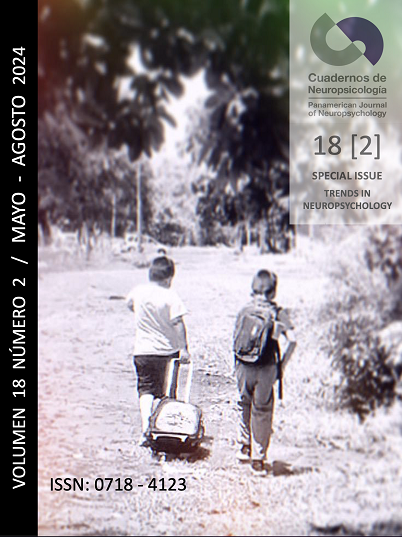The relationship between music classes and verbal fluency in children
Abstract
ABSTRACT
This study examined whether music education was associated with improved performance on measures of children verbal fluency. The total sample consisted of 343 children: 210 children who attended music classes (M = 104 months, SD = 9.17) and 133 children who did not attend music classes (M = 101 months, SD = 4.08). Each participant was assessed for their level of verbal fluency. Results indicated that children who attend music classes for more than a year have significantly better verbal fluency than children who do not attend music classes. These differences persist when controlling for factors such as gender, age, and duration of music classes attendance. The results obtained allow us to consider the practice of music classes as one of the resources for supporting children's language development.
Keywords: music education, verbal fluency, language development.
RESUMEN
Este estudio examinó si la educación musical estaba asociada con un mejor rendimiento en las medidas de fluidez verbal en niños. La muestra total consistió en 343 niños: 210 niños que asistieron a clases de música (M = 104 meses, DE = 9.17) y 133 niños que no asistieron a clases de música (M = 101 meses, DE = 4.08). Se evaluó a cada participante en cuanto a su nivel de fluidez verbal. Los resultados indicaron que los niños que asisten a clases de música durante más de un año tienen una fluidez verbal significativamente mejor que los niños que no asisten a clases de música. Estas diferencias persisten al controlar factores como género, edad y duración de la asistencia a las clases de música. Los resultados obtenidos nos permiten considerar la práctica de clases de música como uno de los recursos para apoyar el desarrollo del lenguaje en los niños.
Palabras clave: educación musical, fluidez verbal, desarrollo del lenguaje.
RESUMO
Este estudo examinou se a educação musical estava associada a um melhor desempenho nas medidas de fluência verbal em crianças. A amostra total consistiu em 343 crianças: 210 crianças que frequentaram aulas de música (M = 104 meses, DP = 9,17) e 133 crianças que não frequentaram aulas de música (M = 101 meses, DP = 4,08). Cada participante foi avaliado quanto ao seu nível de fluência verbal. Os resultados indicaram que crianças que frequentam aulas de música há mais de um ano têm uma fluência verbal significativamente melhor do que crianças que não frequentam aulas de música. Essas diferenças persistem quando controlados fatores como gênero, idade e duração da frequência às aulas de música. Os resultados obtidos permitem-nos considerar a prática de aulas de música como um dos recursos para apoiar o desenvolvimento da linguagem nas crianças.
Palavras-chave: educação musical, fluência verbal, desenvolvimento da linguagem.Downloads
How to Cite
Issue
Section
License
Articles published in this journal are protected under the Creative Commons Attribution-NonCommercial-ShareAlike 4.0 International (CC BY-NC-SA 4.0) license. This means that authors retain full rights over their research and publications at all times. As a journal, we fully respect and promote the principles of open access established by this license, allowing the work to be shared, adapted, and distributed for non-commercial purposes, provided that appropriate credit is given to the authors and any derivative works are licensed under the same terms.
Authors are responsible for obtaining the required permission when they wish to reproduce part of the material (figures, etc.) from other publications.
Likewise, CNPs allows authors to host in their personal sites or other repositories that they deem convenient the Final and Definitive Version of the published article with the format assigned by the journal. In no case do we allow access to preprints of the article under evaluation or already published.
When submitting an article to CNPs you are aware that all the contents of CNPs are under a Creative Commons License. In which it is allowed to copy and share the contents freely, always making reference to the origin of the publication and its author.













